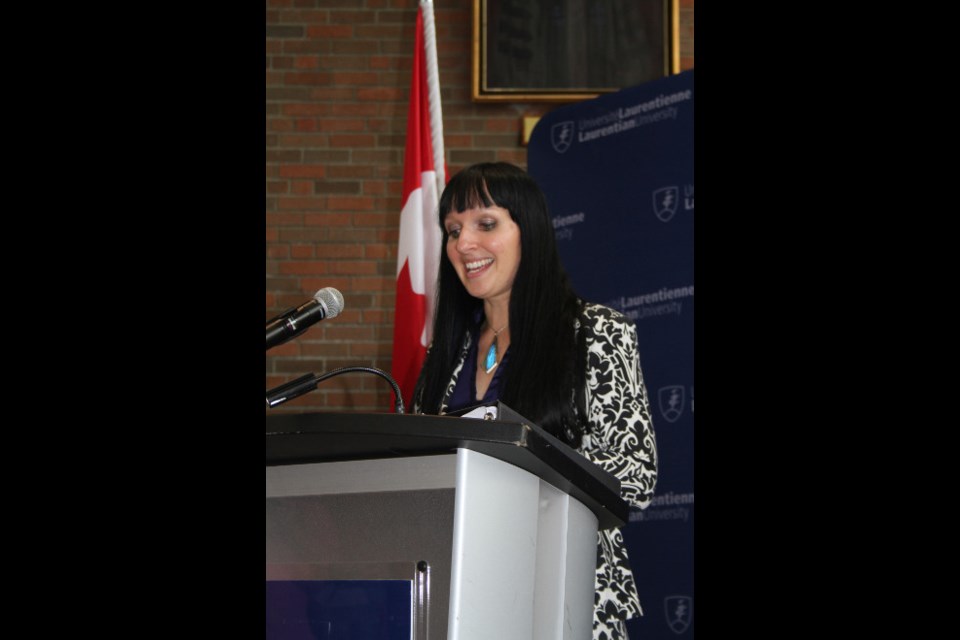Two programs at Laurentian University are getting a boost in funding from the federal government, which for one will be a great help in laboratories and classrooms for future innovation.
The Honourable Kirsty Duncan, Minister of Science, was at the Sudbury university Aug. 15 to tour one of the forensic sciences labs, parts of the grounds and formally announce the Government of Canada is investing more than $500,000.
She announced one will be $149,984 for a field and laboratory analysis facility to advance biomining and bioremediation wastes, the other is $358,781 for an advanced mass spectrometry facility for complex biological samples for the forensics department.
“Leading researchers will tell you, you can't do the science if you don't have the tools,” she said during her address. “They need the best equipment to the best research.”
She added that scientific findings help inform government policy, which is why it is important for researchers to have access to funding so they can replace and upgrade when needed.
Nadia Mykytczuk, an environmental microbiologist at Vale Living with Lakes Centre, was there to receive the funding that would go towards her research projects into biomining. She agreed that for researchers and institutions to get their projects off the ground they need the proper tools. Funding like this is critical for them, as it helps pay for everything from lab supplies to new equipment.
“It feels exceptional to be among those awarded a research grant,” she said. “We can't build our labs or get our research off the ground without our infrastructure support. We really rely on this and these pieces of equipment are extremely expensive and this is something we do not consider out of other research budgets.”
The investment, she added, will go further in the future as they are building facilities that will help support and develop future researchers and projects.
Her project is focusing on mine environments, she explained, specifically, the extreme environment that mine waste creates, which she described as acidic and metal-rich habitat few living organisms can live in. She is looking at those microbes that can as a possible natural solution to remediating mine sites, as well as recovering metals that were missed during the mining process.
“Recovering those metals can help pay for remediation, add profits to the mine companies and hopefully leave the sites cleaner than they were before,” she said.
She is also the Northern Ontario Heritage Fund Corporation Industrial Research Chair in biomining, bioremediation and science communication at Laurentian University.
The funding is coming from the Canada Foundation for Innovation's John R. Evans Leaders Fund. According to a news release, these were part of a nation-wide investment of more than $52 million in 220 new infrastructure projects at 51 universities.




